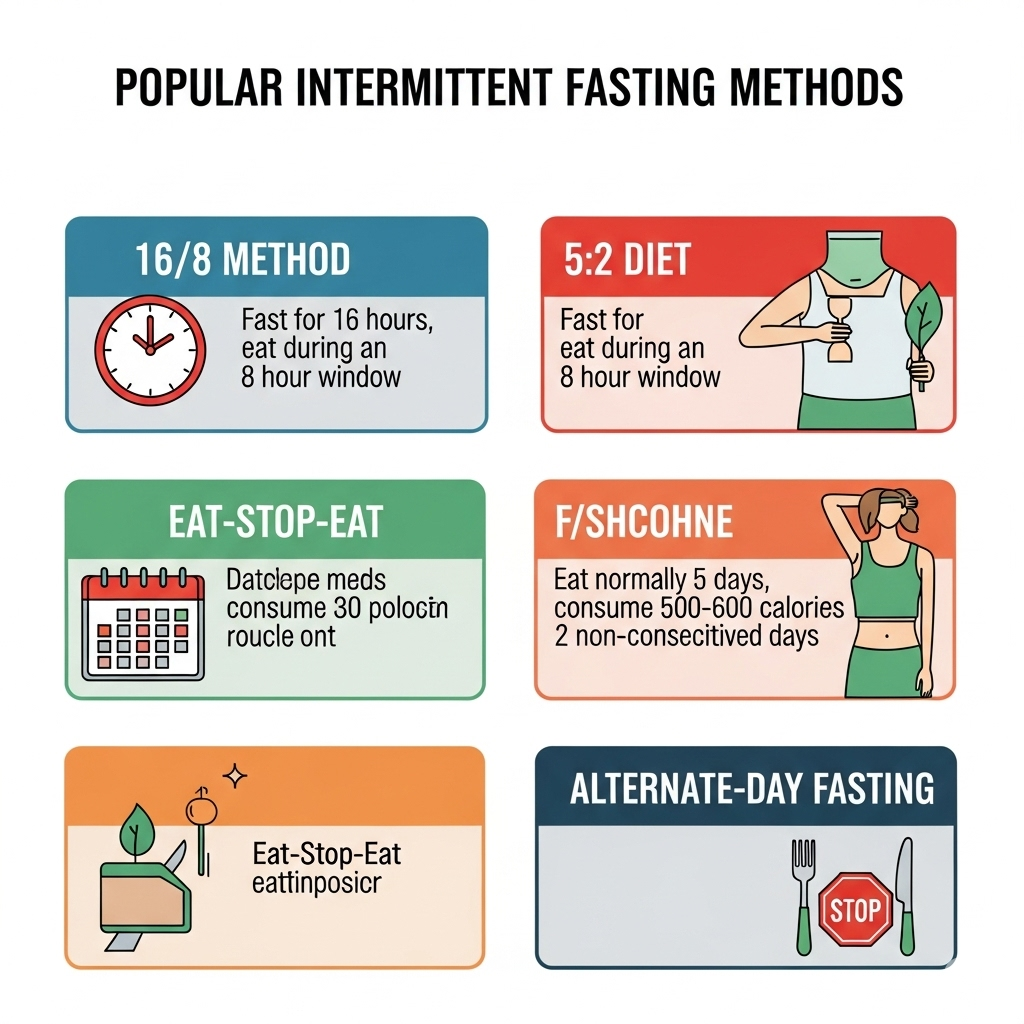Is Intermittent Fasting Good or Bad for Your Health?
Intermittent fasting (IF) has become one of the most popular health and fitness trends in recent years. From celebrities to athletes to everyday people looking for weight loss or better health, many have embraced the idea of eating during specific windows and fasting for the rest of the day.
While its advocates tout benefits like improved metabolism, better blood sugar control, and even longevity, critics warn about possible nutrient deficiencies, disordered eating patterns, and hormonal imbalances.
So, is intermittent fasting truly a path to better health, or could it be harmful in the long run? Let’s break down what science says, the benefits, potential risks, and practical tips for deciding if IF is right for you.

What is Intermittent Fasting?
Unlike traditional diets that focus on what to eat, intermittent fasting focuses on when to eat.
The main principle is cycling between periods of eating and fasting. During fasting hours, you consume no calories (although water, black coffee, and unsweetened tea are generally allowed).
Popular Intermittent Fasting Methods:
- 16/8 Method
You fast for 16 hours and eat within an 8-hour window (e.g., 12 p.m. to 8 p.m.). - 5:2 Diet
You eat normally for five days a week and restrict calories to about 500–600 on the other two days. - Eat-Stop-Eat
You fast for a full 24 hours once or twice a week. - Alternate-Day Fasting
You alternate between fasting days (or very low-calorie days) and normal eating days. - Warrior Diet
You eat small amounts of raw fruits and vegetables during the day and one large meal at night.
To make IF easier, having a timer handy can help you track your eating windows. Many readers love using this easy-to-use digital kitchen timer on Amazon.
How to Use:
Warm a tablespoon of castor oil and massage it directly onto your scalp using circular motions. Leave it on for a minimum of 30 minutes or overnight (use a shower cap to avoid staining your pillow). Rinse thoroughly with shampoo.
Pro Tip: Due to its thickness, mix it with lighter oils like coconut or almond oil for easier application.
The Potential Health Benefits of Intermittent Fasting
While research is ongoing, multiple studies have shown promising effects of intermittent fasting on health and wellbeing.
- Weight Loss and Fat Reduction
Intermittent fasting can help reduce calorie intake by limiting the eating window. Additionally, fasting periods encourage the body to switch from using glucose to burning stored fat for energy, potentially aiding fat loss.
- Improved Insulin Sensitivity
Fasting may help lower blood sugar levels and improve insulin sensitivity, reducing the risk of type 2 diabetes. Some studies show intermittent fasting can reduce fasting glucose by 3–6% and insulin levels by up to 31% in prediabetic individuals.
- Heart Health Support
Intermittent fasting can improve cholesterol levels, blood pressure, and triglycerides — all key factors for cardiovascular health.
- Cellular Repair and Longevity
Fasting triggers autophagy, a process in which the body removes damaged cells and regenerates new ones. Animal studies link autophagy to longer lifespans and reduced risk of age-related diseases.
- Brain Health
Some research suggests fasting may promote the production of brain-derived neurotrophic factor (BDNF), a protein that supports cognitive function and protects against neurodegenerative diseases.
- Reduced Inflammation
Chronic inflammation is linked to numerous health issues, from arthritis to heart disease. Intermittent fasting may reduce markers of inflammation, potentially improving overall health.
The Potential Risks and Drawbacks
While intermittent fasting has benefits, it’s not suitable for everyone. Here are the possible downsides:
- Hunger and Irritability
Especially when starting, fasting can cause intense hunger, irritability, and difficulty concentrating.
- Nutrient Deficiencies
If your eating window is too short or meals aren’t nutrient-rich, you might miss essential vitamins and minerals over time.
- Hormonal Disruption
For some people, especially women, prolonged calorie restriction can disrupt menstrual cycles, fertility, and hormone balance.
- Disordered Eating Risks
Structured fasting windows may trigger or worsen eating disorders in vulnerable individuals.
- Low Energy and Fatigue
Athletes or physically active individuals may struggle with reduced performance if fasting interferes with training fuel.

Who Should Avoid Intermittent Fasting?
Intermittent fasting may not be safe for everyone. It’s best avoided by:
- People with a history of eating disorders
- Pregnant or breastfeeding women
- Individuals with chronic illnesses without medical guidance
- Those with very low body weight
- Children and teenagers in growth phases
Tips for Safe and Effective Intermittent Fasting
If you decide to try intermittent fasting, follow these guidelines to maximize benefits and minimize risks:
- Start Gradually– Begin with a 12-hour fast and slowly extend it to 14–16 hours.
- Stay Hydrated– Drink plenty of water during fasting hours to avoid dehydration.
An insulated water bottle like this one on Amazon keeps your water cold for hours and reminds you to drink more during fasting
- Prioritize Nutrition– Focus on whole, nutrient-rich foods during eating windows.
- Avoid Overeating– Don’t binge when your eating window starts; eat balanced meals.
- Listen to Your Body– If you feel dizzy, fatigued, or unwell, adjust or stop fasting.
- Time Your Workouts– Many find it better to exercise just before or during the eating window to replenish energy.
If you’re starting intermittent fasting, meal prep can make it much easier. These glass meal prep containers from Amazon are perfect for storing healthy, portion-controlled meals.
Intermittent fasting is not a one-size-fits-all solution. It can be a powerful tool for weight management, improved metabolic health, and even longevity for some people. However, it may cause unwanted side effects in others, especially if not done properly.
The key is to assess your own health, lifestyle, and goals — and ideally consult a healthcare professional before starting. When approached mindfully, intermittent fasting can be part of a healthy lifestyle, but it’s not a magic bullet and should be balanced with good nutrition, physical activity, and adequate rest.








